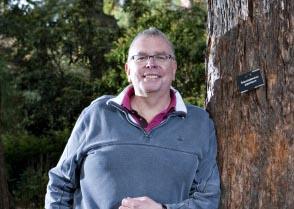
"Health wise I am feeling great. I am a big supporter of trials - it allows new treatments and drugs to be brought in.”
Please note - this trial is no longer recruiting patients. We hope to add results when they are available.
This trial is looking at circulating tumour cells and exercise in men with prostate cancer. It is for men whose prostate cancer has spread elsewhere in the body.
In some men, cancer cells spread beyond the prostate gland and can be found in the blood. These are known as circulating tumour cells, or CTCs. Small blood particles called  can stick on these CTSs and this is known as platelet cloaking. Platelet cloaking may prevent the body’s immune system from finding and killing these cancer cells.
can stick on these CTSs and this is known as platelet cloaking. Platelet cloaking may prevent the body’s immune system from finding and killing these cancer cells.
Men who are overweight have stickier platelets than men who are a normal weight. Researchers think that overweight men may have more platelet cloaking and so their prostate cancer may have a better chance of growing more quickly and spreading. This trial wants to find out if this is the case.
The trial team also want to look at the effect of exercise on prostate cancer. Researchers think that exercise may reduce the stickiness and cloaking of platelets. This is turn may slow down the growth of cancer in overweight men.
The aims of this trial are
The following bullet points list the entry conditions for this trial. If you are unsure about any of these speak with your doctor or the trial team. They will be able to advise you.
You may be able to join this trial if all of the following apply.
 ,
,  or
or 
You cannot join this trial if any of these apply. You
This is an international trial. The researchers need about 67 people to join in the UK.
It is a randomised trial. The people taking part are put into 2 different groups by a computer. Neither you nor your doctor will be able to decide which group you are in.
 )
)
If you are taking part in the exercise programme, you meet the physiotherapist who will design a personal exercise plan that suits your abilities. You then go to an exercise class every week for the next 3 months. This is run by the physiotherapist and you will be with other men with prostate cancer taking part in the trial. Each class lasts about 1 hour.
The physiotherapist will encourage you to continue exercise at home every day and keep an exercise diary. An example of the type of exercise you could do is walking for about 30 minutes.
You will be shown how to use a small monitor for when you exercise at home. This measures your heart rate and helps to guide the intensity of your exercise. The physiotherapist can also use the monitor to download information about your heart rate when you go back to hospital each week.
After 3 months, you no longer go to exercise classes or use the monitor. But you will be asked to continue exercising every day and keep an exercise diary for the next 3 months, at which point your involvement in this trial will finish.
If you are in the other group, you will not take part in the exercise programme.
Men in both groups will have a blood test
This blood sample will used by the trial team to look for and measure CTCs and platelet cloaking. You will not be told about the results of these tests and the results will not affect your treatment. You have these blood tests at the same time as one of your routine blood tests.
Your height, weight and waist circumference will be recorded by a member of the trial team at the same time as your blood tests.
All men fill out a questionnaire on 3 different occasions (at the same time as their blood tests for the trial). The questionnaires will ask about
The trial team will also look at a sample of your cancer that was removed when you had surgery or a  . The trial team will use this to look at the genetic information in your cells.
. The trial team will use this to look at the genetic information in your cells.
After 6 months, any appointments you have will be part of your routine care.
Your planning session with the physiotherapist and your exercise classes will take place at Guy’s hospital in London or St James’s Hospital in Dublin, depending on where you are a patient.
You will not be asked to take part in this trial unless your doctor thinks you are fit and well enough. If you take part in the exercise programme, this is run by a physiotherapist and is very safe. It is very unlikely that you will have side effects as a result of taking part in this trial.
If you take part in regular exercise, it may help to improve your symptoms, sleep and overall quality of life.
Please note: In order to join a trial you will need to discuss it with your doctor, unless otherwise specified.
Dr Sarah Rudman
NIHR Clinical Research Network: Cancer
Prostate Cancer UK
World Cancer Research Fund
If you have questions about the trial please contact our cancer information nurses
Freephone 0808 800 4040

"Health wise I am feeling great. I am a big supporter of trials - it allows new treatments and drugs to be brought in.”